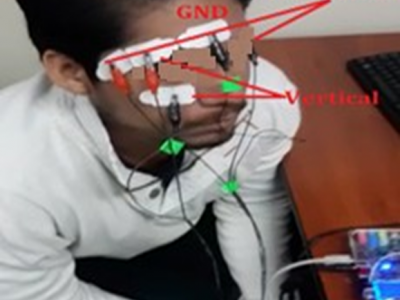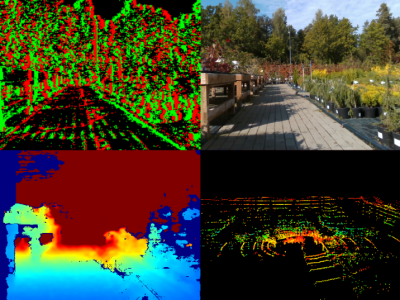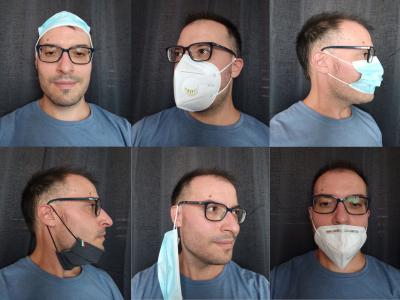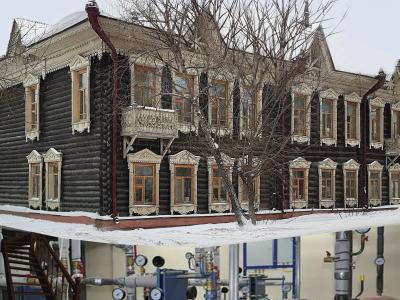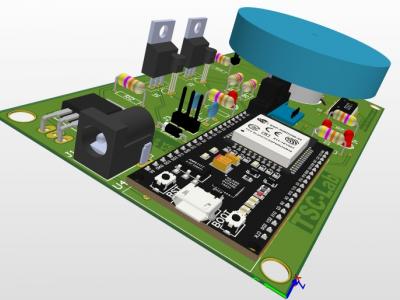IEEE DataPort’s Spring 2020 Dataset Upload Competition Entries
All contest entries will be evaluated and must meet all contest rules in order to be eligible for prizes.

Feature tables and source code for Camargo et al. A Machine Learning Strategy for Locomotion Classification and Parameter Estimation using Fusion of Wearable Sensors. Transactions on Biomedical Engineering. 2021
- Categories:
 556 Views
556 ViewsThe electrodes are sensors capable of reading EMG signals or ocular myoelectric activity during eye movements [1]. For this purpose, two vertical electrodes and two horizontal electrodes were used, with a reference electrode on the forehead (See the figure). 10 subjects performed 10 pseudo-random repetitions of each of the following eye movements during the experiment: Up, Down, Right, Left, no movement (fixation in the center) and blinking.
- Categories:
 89296 Views
89296 ViewsThis data set provides a list of the indexed journal by Scopus, Web of Science, and Directory of Open Access Journals (DOAJ) with the data in each row: Journal ID, Journal name, Publisher name, Publisher Address, Print-ISSN, E-ISSN, Scope, Coverage year, Status level (such as a Top-Level, etc), Cited Score, Languages, and many more.
Reference attached on the link.
- Categories:
 308880 Views
308880 ViewsLiDAR point cloud data serves as an machine vision alternative other than image. Its advantages when compared to image and video includes depth estimation and distance measruement. Low-density LiDAR point cloud data can be used to achieve navigation, obstacle detection and obstacle avoidance for mobile robots. autonomous vehicle and drones. In this metadata, we scanned over 1200 objects and classified it into 4 groups of object namely, human, cars, motorcyclist.
- Categories:
 934 Views
934 Views
Distribution test systems with 24, 54, 86, and 136 nodes, which can be used for distribution system reliability evaluation. All these Networks are medium-voltage (MV) distribution grids.
- Categories:
 862 Views
862 ViewsWe have developed this dataset for the Bangla image caption. Here, we have recorded 500 images with one caption of each. Basically the lifestyle, festivals are mainly focused in this dataset. We have accomplished rice/harvest festivals, snake charming, palanquin, merry-go-round, slum, blacksmith, potter, fisherman, tat shilpo, jamdani, shutki chash, date juice, hal chash, tokai, pohela falgun, gaye holud, etc.
- Categories:
 1820 Views
1820 Views
Sparse triangular solves (SpTRSVs) are widely used in linear algebra domains, and several GPU-based SpTRSV algorithms have been developed. Synchronization-free SpTRSVs, due to their short preprocessing time and high performance, are currently the most popular SpTRSV algorithms. However, we observe that the performance of those SpTRSV algorithms on different matrices can vary greatly by 845 times. Our further studies show that when the average number of components per level is high and the average number of nonzero elements per row is low, those SpTRSVs exhibit extremely low performance.
- Categories:
 88 Views
88 ViewsETFP (Eye-Tracking and Fixation Points) consists of two eye-tracking datasets: EToCVD (Eye-Tracking of Colour Vision Deficiencies) and ETTO (Eye-Tracking Through Objects). The former is a collection of images, their corresponding eye-movement coordinates and the fixation point maps, obtained by involving two cohorts, respectively, people with and without CVD (Colour Vision Deficiencies). The latter collects images with just one object laying on a homogeneous background, the corresponding eye-movement coordinates and fixation point maps gathered during eye-tracking sessions.
- Categories:
 1516 Views
1516 Views
- Categories:
 4694 Views
4694 ViewsIn order to obtain the constants of our PID temperature controller, it was necessary to identify the system. The identification of the system allows us, through experimentation, to find the representation of the plant to be able to control it.
The first data with name "data_2.mat" represent the open loop test, where the sampling frequency is 100 [Hz], this data was useful to find the period of the pulse train generator, which is twice the slowest sampling time analyzed between the high pulse and low pulse of the input.
- Categories:
 356 Views
356 Views
The provided dataset computes the exact analytical bit error rate (BER) of the NOMA system in the SISO broadcast channels with the assumption of i.i.d Rayleigh fading channels. The reader has to decide on the following input: 1) Number of users. 2) Modulation orders. 3) Power assignment. 4) Pathloss. 5) Transmit signal-to-noise ratio (SNR). The output is stored in a matrix where different rows are for different users while different columns are for different transmit SNRs.
- Categories:
 727 Views
727 Views
The dataset is divided into two sub-folders - 'source' and 'target'. The 'source' folder has a total of 4,080 images of Chest X-rays. The 'target' folder has a total of 4,080 Dual-Energy subtracted images corresponding to the images present in 'source' folder.
- Categories:
 754 Views
754 ViewsThis dataset has been developed based on the work of the GeoCOV19Tweets Dataset. The original work by Lamsal, R. runs network analysis on a similar dataset to understand the underlying relationship between countries and hashtags. The work did an analysis on roughly 300k number of [country, hashtag] relations from 190 countries and territories, and 5055 unique hashtags. This work pushes the number of relationships by 3 times.
- Categories:
 4197 Views
4197 ViewsA new generation of computer vision, namely event-based or neuromorphic vision, provides a new paradigm for capturing visual data and the way such data is processed. Event-based vision is a state-of-art technology of robot vision. It is particularly promising for use in both mobile robots and drones for visual navigation tasks. Due to a highly novel type of visual sensors used in event-based vision, only a few datasets aimed at visual navigation tasks are publicly available.
- Categories:
 1383 Views
1383 ViewsThis dataset contains (1) the Simulink model of a three-phase photovoltaic power system with passive anti-islanding protections like over/under current (OUC), over/under voltage (OUV), over/under frequency (OUF), rate of change of frequency (ROCOF), and dc-link voltage and (2) the results in the voltage source converter and the point of common coupling of the photovoltaic system during islanding operation mode and detection times of analyzed anti-islanding methods.
- Categories:
 1903 Views
1903 Views
This code demonstrate the example use of FOPDT (First-Order-Plus-Dead-Time) model identification. The Algorithm used in "FOPDT_fun" is available in the reference:
S. Sharma and P. K. Padhy, "A Novel Iterative System Identification and Modeling Scheme with Simultaneous Time-Delay and Rational Parameter Estimation," in IEEE Access,
vol. 8, pp. 64918-64931, 2020, doi: 10.1109/ACCESS.2020.2985132.
- Categories:
 300 Views
300 ViewsThe data provided here correspond to the TPWRS paper presenting a novel filter design procedure to optimally split the Frequency Regulation (FR) signal between conventional and fast regulating Energy Storage System (ESS) assets, considering typical Communication Delays (CDs). The filter is then integrated into a previously validated FR model of the Ontario Power System (OPS) including Battery and Flywheel ESSs, which is used to analyze the impact of these ESSs, CDs, and limited regulation capacity in the FR process in a real system. The proposed methodology to split the
- Categories:
 424 Views
424 ViewsComputer-assisted intraoperative intraocular lens (IOL) positioning and alignment is a valuable study. It is important to precisely position and align the axis of IOL during surgery to achieve optimal post-operative astigmatism correction. The cataract surgery dataset is proposed in the research paper “Computer-aided Intraoperative Toric Intraocular Lens Positioning and Alignment During Cataract Surgery”.
- Categories:
 1864 Views
1864 ViewsThe Ways To Wear a Mask or a Respirator Database (WWMR-DB) is a test database that can be used to compare the behavior of current mask detection systems with images that most closely resemble the real case. It consists of 1222 images divided into 8 classes, depicting the most common ways in which masks or respirators are worn:
- Mask Or Respirator Not Worn
- Mask Or Respirator Correctly Worn
- Mask Or Respirator Under The Nose
- Mask Or Respirator Under The Chin
- Mask Or Respirator Hanging From An Ear
- Mask Or Respirator On The Tip Of The Nose
- Categories:
 3020 Views
3020 ViewsWith the advancement in sensor technology, huge amounts of data are being collected from various satellites. Hence, the task of target-based data retrieval and acquisition has become exceedingly challenging. Existing satellites essentially scan a vast overlapping region of the Earth using various sensing techniques, like multi-spectral, hyperspectral, Synthetic Aperture Radar (SAR), video, and compressed sensing, to name a few.
- Categories:
 396 Views
396 ViewsWith the advancement in sensor technology, huge amounts of data are being collected from various satellites. Hence, the task of target-based data retrieval and acquisition has become exceedingly challenging. Existing satellites essentially scan a vast overlapping region of the Earth using various sensing techniques, like multi-spectral, hyperspectral, Synthetic Aperture Radar (SAR), video, and compressed sensing, to name a few.
- Categories:
 339 Views
339 ViewsWITH the advancement in sensor technology, huge amounts of data are being collected from various satellites. Hence, the task of target-based data retrieval and acquisition has become exceedingly challenging. Existing satellites essentially scan a vast overlapping region of the Earth using various sensing techniques, like multi-spectral, hyperspectral, Synthetic Aperture Radar (SAR), video, and compressed sensing, to name a few.
- Categories:
 313 Views
313 ViewsWITH the advancement in sensor technology, huge amounts of data are being collected from various satellites. Hence, the task of target-based data retrieval and acquisition has become exceedingly challenging. Existing satellites essentially scan a vast overlapping region of the Earth using various sensing techniques, like multi-spectral, hyperspectral, Synthetic Aperture Radar (SAR), video, and compressed sensing, to name a few.
- Categories:
 463 Views
463 ViewsWITH the advancement in sensor technology, huge amounts of data are being collected from various satellites. Hence, the task of target-based data retrieval and acquisition has become exceedingly challenging. Existing satellites essentially scan a vast overlapping region of the Earth using various sensing techniques, like multi-spectral, hyperspectral, Synthetic Aperture Radar (SAR), video, and compressed sensing, to name a few.
- Categories:
 1681 Views
1681 ViewsMore than 40% of energy resources are consumed in the residential buildings, and most of the energy is used for heating. Improving the energy efficiency of residential buildings is an urgent problem. The collected data is intended to study a dependence of the dynamics heat energy supply from outside temperature and houses characteristics, such as walls material, year of construction, floors amount, etc. This study will support the development of methods for comparing thermal characteristics of residential buildings and carry out recommendations for the energy efficiency increases.
- Categories:
 1040 Views
1040 ViewsMore than 40% of energy resources are consumed in the residential buildings, and most of the energy is used for heating. Improving the energy efficiency of residential buildings is an urgent problem. The collected data is intended to study a dependence of the dynamics heat energy supply from outside temperature and houses characteristics, such as walls material, year of construction, floors amount, etc. This study will support the development of methods for comparing thermal characteristics of residential buildings and carry out recommendations for the energy efficiency increases.
- Categories:
 457 Views
457 ViewsThe S3 dataset contains the behaviour (sensors, statistics of applications, and voice) of 21 volunteers interacting with their smartphones for more than 60 days. The type of users is diverse, males and females in the age range from 18 until 70 have been considered in the dataset generation. The wide range of age is a key aspect, due to the impact of age in terms of smartphone usage. To generate the dataset the volunteers installed a prototype of the smartphone application in on their Android mobile phones.
- Categories:
 2507 Views
2507 Views
This dataset is used to model the zinc concentrate grade monitoring, which includes features of froth video in the last cleaning cell.
- Categories:
 284 Views
284 Views
Laminated Object Manufacturing (LOM) is an efficient rapid prototyping technology (RPT), a suitable technique with many applications. However, its application for wood product prototyping (WPP), especially in micro-thin wood objects, namely different types of wood veneers, the thermal heat effect emanating from LOM heat sources, challenge the quality of the final 3D wood products.
- Categories:
 159 Views
159 Views
# -*- coding: utf-8 -*-
"""
Created on Wed Feb 26 11:19:38 2020
@author: ali nouruzi
"""
import numpy as np
import random
- Categories:
 503 Views
503 Views
This dataset of 7200 channels is generated at different locations in the room area of 30x15x4 m3, where the locations are separated by 0.25m in both horizontal and vertical directions. Each AP uses 10 dBm TX power and 2D BF. In the concurrent mmWave BT scenario, all APs are operating, while in the single mmWave BT scenario, we consider a single AP fixed on the center of the room’s ceiling
- Categories:
 216 Views
216 Views
This dataset of 7200 channels is generated at different locations in the room area of 30x15x4 m3, where the locations are separated by 0.25m in both horizontal and vertical directions. Each AP uses 10 dBm TX power and 2D BF. In the concurrent mmWave BT scenario, all APs are operating, while in the single mmWave BT scenario, we consider a single AP fixed on the center of the room’s ceiling
- Categories:
 841 Views
841 Views
This file contains the MAB algorithms for millimeter wave (mmWave) beamforming training (BT) in Indoor environment for both single beam and concurrent beams scenarios. The algorithms were developed using MATLAB software and they are making use of the following data set
- Categories:
 265 Views
265 Views
Mother’s Significant Feature (MSF) Dataset has been designed to provide data to researchers working towards woman and child health betterment. MSF dataset records are collected from the Mumbai metropolitan region in Maharashtra, India. Women were interviewed just after childbirth between February 2018 to March 2021. MSF comprise of 450 records with a total of 130 attributes consisting of mother’s features, father’s features and health outcomes. A detailed dataset is created to understand the mother’s features spread across three phases of her reproductive age i.e.
- Categories:
 2374 Views
2374 Views
The feature map from convolution neural networks
- Categories:
 85 Views
85 ViewsThe data acquisition process begins with capturing EEG signals from 20 healthy skilled volunteers who gave their written consent before performing the experiments. Each volunteer was asked to repeat an experiment for 10 times at different frequencies; each experiment was trigger by a visual stimulus.
- Categories:
 35903 Views
35903 Views
<p><span class="fontstyle0">Software architecture is the most important determinant<br />to systematically achieve quality attributes in a software<br />system, including software performance. However there is no<br />comprehensive understanding of why and how to integrate<br />software architecture and performance analysis to guide research.<br />To fill this gap, this paper presents a systematic review of 83<br />studies.
- Categories:
 242 Views
242 ViewsOf late, efforts are underway to build computer-assisted diagnostic tools for cancer diagnosis via image processing. Such computer-assisted tools require capturing of images, stain color normalization of images, segmentation of cells of interest, and classification to count malignant versus healthy cells. This dataset is positioned towards robust segmentation of cells which is the first stage to build such a tool for plasma cell cancer, namely, Multiple Myeloma (MM), which is a type of blood cancer. The images are provided after stain color normalization.
- Categories:
 6806 Views
6806 Views
This paper describes a sensor fusion technique to localize autonomously unmanned vehicles. In particular, we performed a sensor fusion based on the extended Kalman filter between two commercial sensors. The adopted sensors are ZED2 and Intel T265, respectively; these platforms already perform visual-inertial odometry in their integrated system-on-chip. Since these 2 devices represent the top of the range on the market to make an autonomous localization, this study aims to analyze and inform about results that can be obtained by performing a sensor fusion between the two cameras.
- Categories:
 161 Views
161 Views
Wearable sensors can efficiently detect human body movements with the ability to be extended to an Internet-of-Things (IoT) platform. In this platform, integration of wearable sensors, smartphones, and activity recognition takes place on a web-based application. A SensorTile kit from STMicroelectronics is an IoT module that packs powerful processing capabilities and is mostly used for activity detection. It consists of a 3-axis accelerometer, 3-axis gyroscope, 3-axis Magnetometer and Pressure, Temperature, and Humidity sensors.
- Categories:
 294 Views
294 Views
This dataset is proposed for human activity recognition tasks. The static activities including sitting, standing, and laying, as well as walking, running, cycling, and walking upstairs/downstairs. Each activity lasts for 2 minutes, 50 subjects were involved in the experiments.
- Categories:
 592 Views
592 ViewsPages
- 1564 reads

